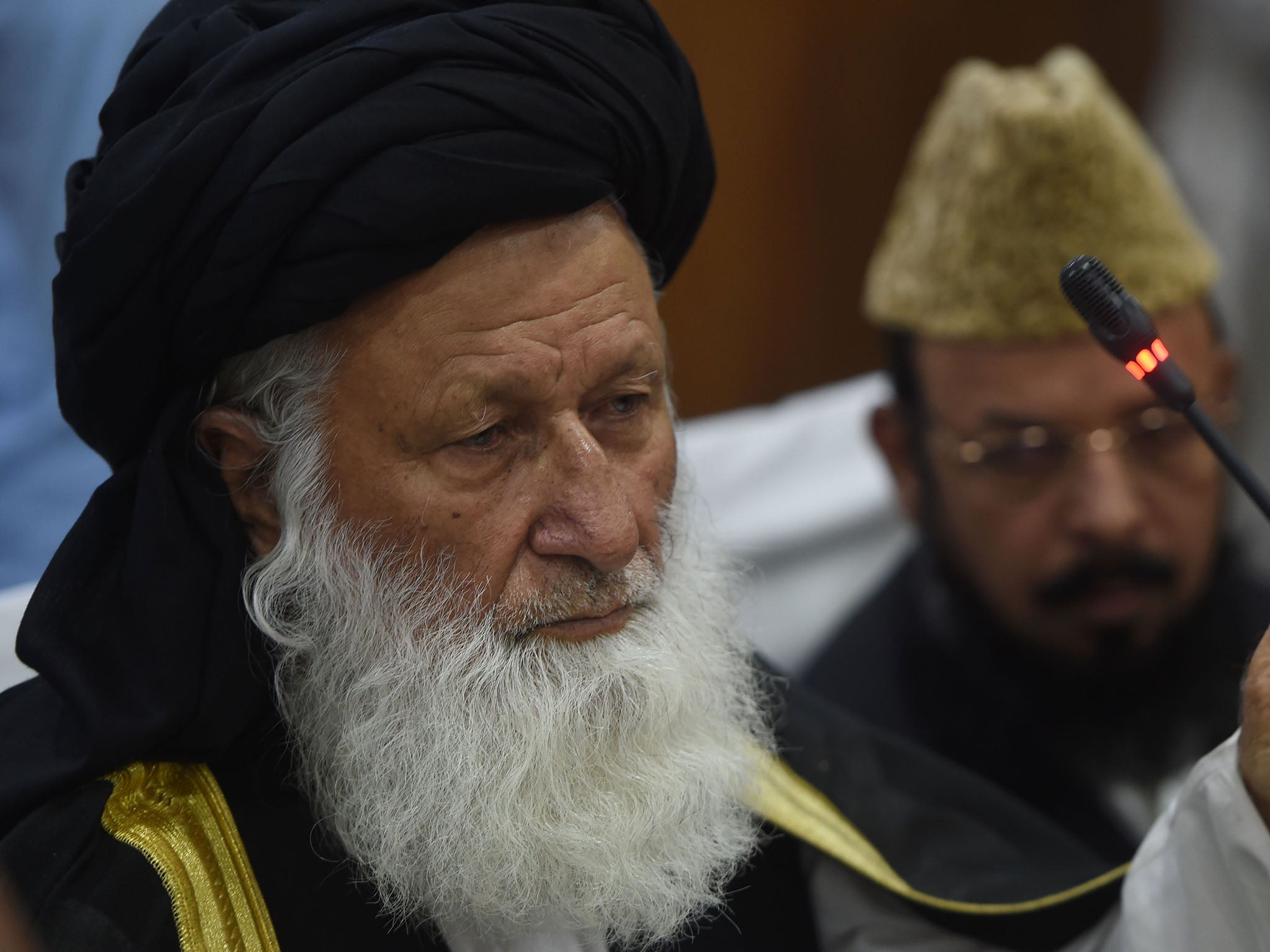Pakistani religious leader defends telling men it is acceptable to 'beat their wives lightly' for refusing sex
‘If a woman doesn’t respond to advice … after you’ve used all the options, what should be done?’

Your support helps us to tell the story
From reproductive rights to climate change to Big Tech, The Independent is on the ground when the story is developing. Whether it's investigating the financials of Elon Musk's pro-Trump PAC or producing our latest documentary, 'The A Word', which shines a light on the American women fighting for reproductive rights, we know how important it is to parse out the facts from the messaging.
At such a critical moment in US history, we need reporters on the ground. Your donation allows us to keep sending journalists to speak to both sides of the story.
The Independent is trusted by Americans across the entire political spectrum. And unlike many other quality news outlets, we choose not to lock Americans out of our reporting and analysis with paywalls. We believe quality journalism should be available to everyone, paid for by those who can afford it.
Your support makes all the difference.The head of Pakistan’s Council of Islamic Ideology (CII) has explained when it is acceptable to beat your wife - and how it should be done.
Last month, the CII submitted a draft women’s rights bill which suggested it was acceptable for a husband to “lightly beat” his wife for reasons such as refusing sex, ignoring demands and not bathing.
Maulana Muhammed Khan Sherani, the head of the Council, has now defended the right to inflict domestic abuse, claiming it was in accordance with Islam.
“These recommendations are according to the Quran and Sunnah, the prophet’s teachings. No one can dispute that,” the CII chairman said in an interview with the BBC.
“When we draft a bill concerning women we have to consider all possible situations.
“If a woman does not fulfil her responsibilities in marriage first you advise her, if that doesn’t work, then you consult her relatives. If that doesn’t work then you desert her in bed. If all of this doesn’t work, then light beating is allowed.
“What is the solution to this issue? If a woman doesn’t respond to advice, doesn’t listen to her relatives, after you’ve used all the options, what should be done?”
The draft bill is a response to a new law – the women’s protection act – passed by the Punjab assembly earlier this year, which gives women legal protection from domestic, psychological and sexual violence.
The CII, which advises the government on the compatibility of laws with Islam, declared the Parliament’s new act as “un-Islamic”, saying “the whole law is wrong”, according to the Express Tribune.
Their alternative proposal from the CII - which came in the form of a 163-point draft women’s protection bill – bans women from appearing in visual advertisements, and forbids women to visit men who are not relatives.
However, it is the suggestion of domestic violence which has sparked the most outrage, with Pakistan’s media and human rights activists saying it encourages people to abuse their wives.
According to the draft bill: “A husband should be allowed to lightly beat his wife if she defies his commands and refuses to dress up as per his desires; turns down demand of intercourse without any religious excuse or does not take bath after intercourse or menstrual periods.”
Mr Sheerani told the Express Tribune what he meant by the term “light beating”. “Hit her with light things like handkerchief, a hat or a turban, but do not hit her on the face or private parts.
“The beating should not cause any kind of physical damage or even scratches. Resort to light stuff, nothing serious,” he explained.
As for claims the draft bill condones violence, he said: “The issue has been blown totally out of proportion. Everyone condemns violence. People need to be educated to stay away from violence.”
The proposals faced a considerable backlash on social media, as the hashtag #trybeatingmelightly, which was started by photographer Fahhad Rajper, quickly gained momentum among women in Pakistan.
When asked about whether media response had encouraged him to change his views on the matter, the Mullah told the BBC: “Society is not the media, they’re two different things. We will not reconsider the recommendations. This is according to the Quran, you cannot ask someone to reconsider the Quran.”
Join our commenting forum
Join thought-provoking conversations, follow other Independent readers and see their replies
Comments